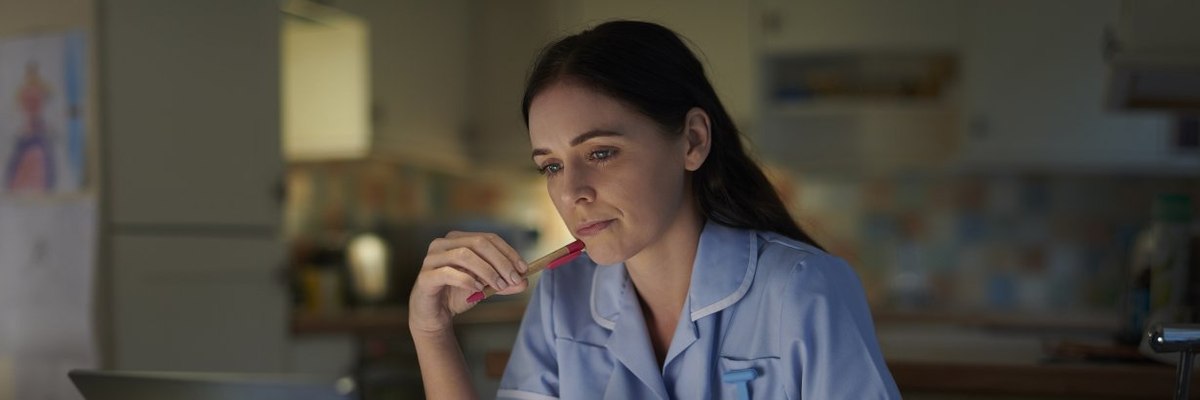While Geoff Bezos and his billionaire chums tell the world that it is possible to live forever if only we pile enough money into research, Britain’s doctors have taken a step towards legalising assisted suicide. Most rational people will probably take the view that the Bezos dream is not only the stuff of nightmares but mercifully unlikely ever to be realised. Laws allowing assisted dying have already been passed in many countries, including a growing number of states in America. But the British parliament have voted against. So far. Do you think the time has come for a serious rethink? And are you yourself contemplating signing a form that would tell your loved ones that you do not want to be kept alive under certain circumstances?
Doctors at the annual meeting of the British Medical Association voted not to oppose physician-assisted dying. They voted to “move to a position of neutrality on assisted dying, including physician-assisted dying”.
The BMA, which represents 150,000 doctors, has opposed legalising assisted dying since 2006. However, a survey of its members in February last year found that the proportion in favour of a change in law now outnumbered those against. Delegates at the meeting agreed that the union should move to a neutral position by a vote of 49 per cent to 48 per cent, with 3 per cent abstaining. The meeting was told that changing the BMA’s stance would allow the union to have “a seat at the table” when legalisation on assisted dying was being discussed in parliament.
It is a criminal offence under the 1961 Suicide Act to help someone end their life, with a prison sentence of up to 14 years. A private member’s bill to legalise assisted dying in England and Wales is due to have its second reading in the House of Lords this autumn. Dr Robin Arnold, a retired doctor who proposed the move, said the idea that most doctors opposed the idea had been “swept away” by last year’s poll and that a neutral position would help the BMA argue for appropriate safeguards in any legislation, allowing doctors who objected to abstain from taking part in assisted dying.
The survey found that 40 per cent of doctors thought the BMA should support prescribing drugs for self-administration to end the lives of eligible patients. A further 21 per cent said it should be neutral and 33 per cent said this should be opposed.
Perhaps, as Dr Arnold said, his colleagues were indeed swayed by the polls, which unfailingly show that the public is way ahead of them. Every year the majority in favour increases. The latest polls suggest almost 90% of respondents want some form of physician-assisted dying. The obvious explanation for that is that so many of us have seen friends or relatives suffer at the end of their days, perhaps because dementia has robbed them of a meaningful existence or because they have been struck down by a dreadful incurable disease such as motor neurone.
Or perhaps they have read too many reports of people making the trip to Switzerland with a loved one who has begged them to be allowed to die and regard the Dignitas clinic as the only way to do it. They know they are breaking the law in this country by assisting their suicide, though police no longer arrest people on their return home as they once did. But that, for many, is not the point. They argue that what happens in Switzerland and many other countries should be allowed here too.
My own father suffered from dementia and, in his more lucid moments, begged to be allowed to die. After some hideous experiences in care homes who simply could not cope with him, he was admitted to a home for the elderly infirm where he had excellent treatment. When he became ill with a lung infection I asked the consultant, who knew him pretty well, what we should do. He told me: “It seems to me he has turned his face to the wall”. I asked if that meant he felt he should not be treated and hr nodded. So My father was allowed to die. It was a peaceful and, I think, dignified death with his children at his bedside. He was 92.
Many years ago I became friendly with a middle-aged woman who loved life. She was bright, thoughtful and had a wicked sense of humour. Until dementia struck at the cruelly young age of fifty. Within five years she was physically and mentally devastated. Incapable of speech or any independent movement. She spent another ten years confined to her bed. Nobody knows how much she was suffering because she could not communicate. Two weeks ago she died. Her suffering had finally ended. And a terrible burden had been lifted from her wonderful daughter who had sacrificed her own life to care for her mother. But twice in those hellish years she had developed life-threatening infections. Twice she was rushed to hospital and ‘cured’. Why?
This past week, as the BMA was voting, the mother of an old friend died. She was in her nineties, in poor health and had been in a nursing home but with all her mental faculties. She wanted to die at home and her children respected her wishes. They were with her in her final hours. They did nothing to hasten her death but she had made it clear she did not want to be kept alive. They mourned her death but celebrated her life.
This was not assisted suicide. There was no doctor present. But she had a dignified end surrounded by those she loved. This surely is what many of us would hope for ourselves.
Physician-assisted dying is something different but it need not be the monstrous act conjured up by its opponents. Some call it euthanasia and paint terrifying pictures of helpless victims being bumped off by unscrupulous relatives desperate to get their hands on their inheritance. Inevitably that has happened. It would be foolish to pretend otherwise. But the evidence, such as it is, suggests it is vanishingly rare.
The bill now being considered in the House of Lords lays down many strict safeguards, including the proviso that any attempt to enable suicide would require the agreement of two independent doctors.
Even so, there are many opponents, including the former Archbishop of Canterbury Dr Rowan Williams, the former Archbishop of Canterbury and Archbishop of Wales. In a statement submitted to the British Medical Journal, Lord Williams warned medics that a change in the law would lead to "overstrained families" and "overstretched medical resources" exerting pressure on many patients to take their lives by assisted suicide.
He questioned whether the progress and provision of palliative care in the UK could survive "overburdened budgets" when enabling the suicides of people who required nursing and hospice care became the cheaper option. He also raised grave doubts about doctors’ ability to make correct prognoses of illnesses that might justify the prescriptions of lethal drugs envisioned by the Assisted Dying Bill.
His position directly contradicts that expressed by Lord Carey, also a former Archbishop of Canterbury, who has reaffirmed his support for assisted suicide. He wrote in the British Medical Journal that there is "nothing holy about agony" and he went on: "We have to be aware of the reality of pressure on seriously ill patients to take certain decision ... which may very understandably come from overstrained families as well as overstretched medical systems. We should note that fear of such pressure within the medical system may discourage seriously ill patients from seeking appropriate medical help; the issues of doctor- patient trust involved are real." And he added: "There are immensely complicated questions around how the law is to identify conditions that would 'justify' medical intervention that has the direct and intended consequence of ending life. The obvious risks in labelling certain conditions in this way are of alarmist messages to patients at large, and of pressure to claim greater prognostic certainty than is realistic. Many disability groups also have strong views on this set of problems."
Regular readers of this website may note that I have not approached this subject with what I hope is my usual objectivity. That’s because I feel strongly we should have the right to end our own lives with the assistance of a doctor under certain strict conditions.
It would mean that dying in dignity will become a right just as it is already in a growing number of countries. It is surely infinitely preferable to a zombie existence year after year because of dementia. Or the hell of an incurable disease like motor neurone’s, watching your body close down until you can’t even breathe.
What is your view? Do you support a change in the law that would allow a doctor to help someone die or do you want the law to remain as it is?
Do let us know.






